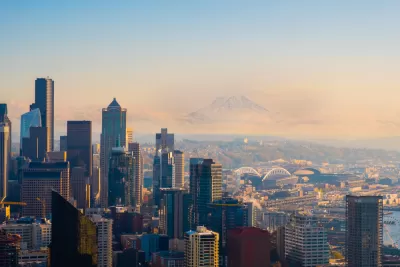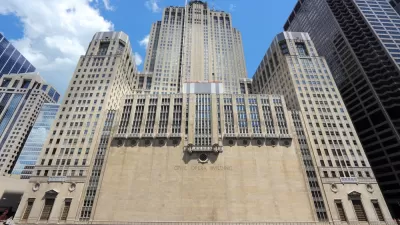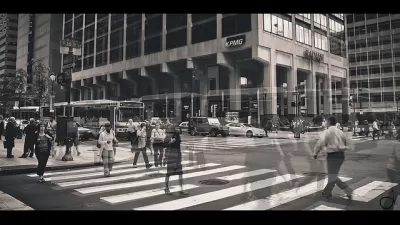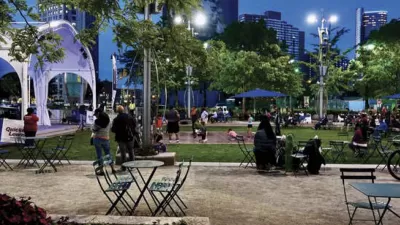The fortunes of commercial real estate in Seattle have completely reversed since February, according to a new analysis.

Gene Balk shares news of a sudden recovery in office demand in Seattle.
Before the pandemic, Seattle was home to a booming tech industry and was consistently ranked among the fastest growing cities in the United States. As recently as February 2021, Balk was writing about the catastrophic collapse of demand for office spaces. But since then, demand has come roaring back, according to the Office Demand Index produced by VTS, the New York-based company that provides leasing and asset management software for commercial real estate landlords.
"From 2018 to 2019, Seattle had an average monthly index score of 90. That, of course, was before the pandemic had closed down offices, requiring millions of employees to work from home. By December 2020, Seattle’s index number had plummeted to a dismal 17," writes Balk. "But in 2021, Seattle has experienced a tremendous rebound, with interest in new office space growing each month. As of March, the index for interest in office space had shot past the pre-pandemic average, hitting 107."
According to researchers at VTS, the sudden shift is the result of pent-up demand and companies seeing the light at the end of the tunnel and working to get a jump on the market. There's another big caveat among he data shared by VTS: office space leasing for the tech industry is still far slower than pre-pandemic levels. "But a surge in interest in office space from other major industries in Seattle — health care, legal and professional services — has made up for that."
FULL STORY: Downtown Seattle dying? Not so fast. Demand for office space roars back to pre-pandemic levels

Americans May Be Stuck — But Why?
Americans are moving a lot less than they once did, and that is a problem. While Yoni Applebaum, in his highly-publicized article Stuck, gets the reasons badly wrong, it's still important to ask: why are we moving so much less than before?

Using Old Oil and Gas Wells for Green Energy Storage
Penn State researchers have found that repurposing abandoned oil and gas wells for geothermal-assisted compressed-air energy storage can boost efficiency, reduce environmental risks, and support clean energy and job transitions.

Placekeeping: Setting a New Precedent for City Planners
How a preservation-based approach to redevelopment and urban design can prevent displacement and honor legacy communities.

San Francisco’s Muni Ridership Grew in 2024
The system saw its highest ridership since before the Covid-19 pandemic, but faces a severe budget shortage in the coming year.

Colorado Lawmakers Move to Protect BRT Funding
In the face of potential federal funding cuts, CDOT leaders reasserted their commitment to planned bus rapid transit projects.

Safe Streets Funding in Jeopardy
The Trump administration is specifically targeting bike infrastructure and other road safety projects in its funding cuts.
Urban Design for Planners 1: Software Tools
This six-course series explores essential urban design concepts using open source software and equips planners with the tools they need to participate fully in the urban design process.
Planning for Universal Design
Learn the tools for implementing Universal Design in planning regulations.
Heyer Gruel & Associates PA
City of Moreno Valley
Institute for Housing and Urban Development Studies (IHS)
City of Grandview
Harvard GSD Executive Education
Salt Lake City
NYU Wagner Graduate School of Public Service
City of Cambridge, Maryland





























